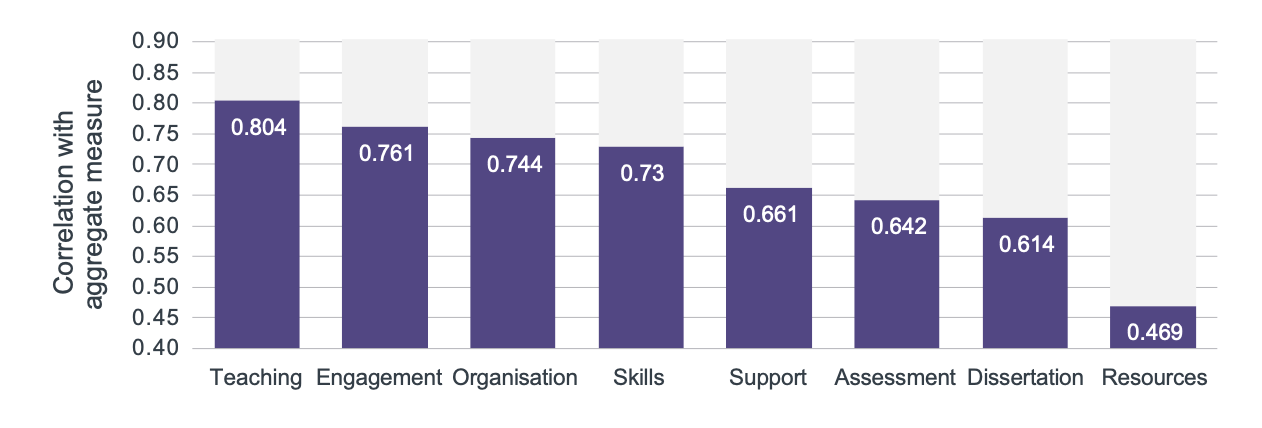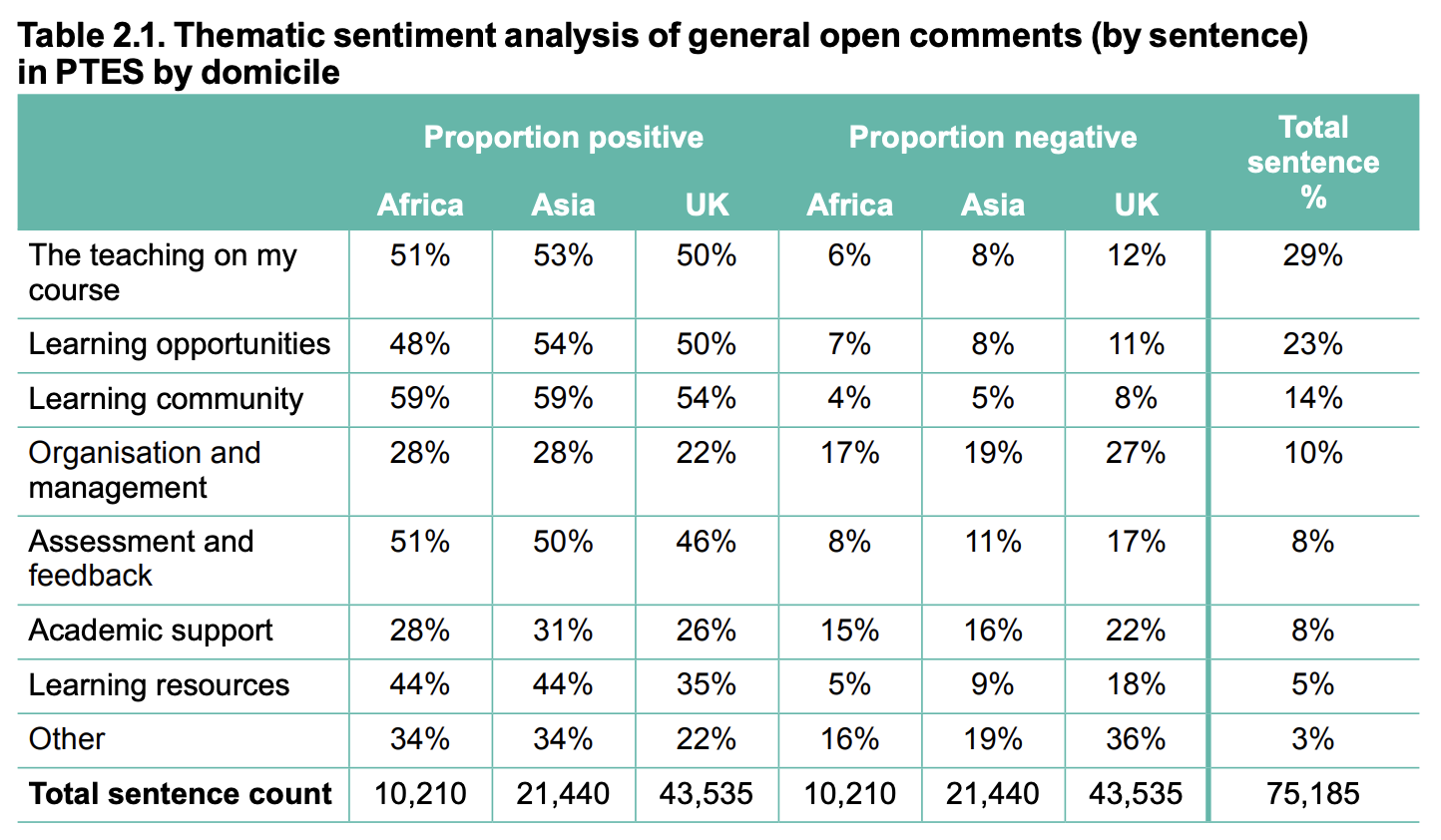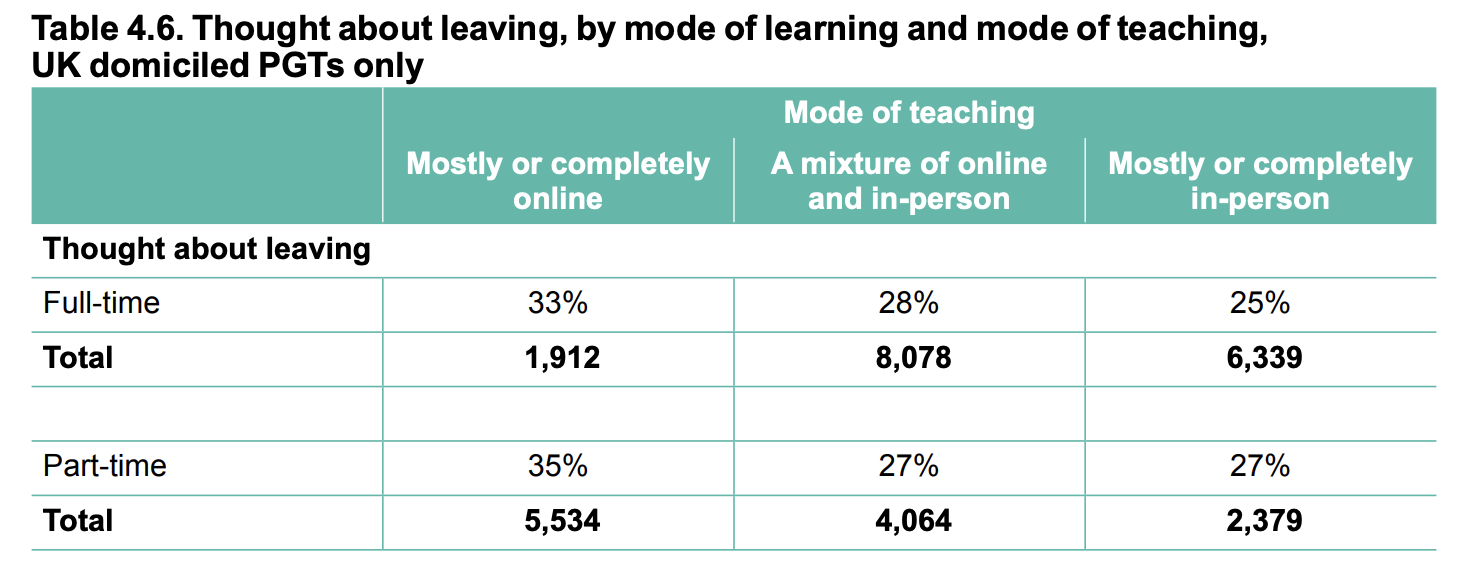What is PTES 2023 telling us?
Jim is an Associate Editor (SUs) at Wonkhe
Tags
18 per cent of postgraduate taught students had considered leaving their course and, of those, the number who cited financial difficulties increased from 8 per cent in 2022 to 11 per cent in 2023.
And as in PRES, there’s a significant Disabled gap – 85 per cent of non-Disabled students were overall satisfied with the quality of their course, a score that’s 10 percentage points lower for Disabled students.
I’ve moaned here before about problems when comparing unweighted surveys of a sample of students year on year – but as in the National Student Survey, we do need to think carefully about claims that X or Y has happened over time given shifts in the populations that are being compared.
Last year Advance HE said that although PTES 2022 had a significantly higher proportion of responses from non-UK students than the sector data for 2021, it was not clear if that reflected a shift in the taught postgraduate population, a disparity in response rates from UK and non-UK domiciled students, or some combination of the two. Either way, there appears to be an overrepresentation again this year of intersecting categories of those on Business and Management courses and non-EU international students.
As such it’s the splits that matter more – and looking at correlations with overall satisfaction, teaching is the most important area, followed by skills and organisation and engagement – a finding that holds within different student cohorts.

Those international/home differences are usefully explored via a quantitative analysis of open comments in PTES 2023 by domicile – something that, frustratingly, OfS has never managed to do in the NSS.
There, UK students were twice as likely to be negative about teaching, belonging and assessment and feedback than students from Africa or Asia – and almost four times as likely to be negative about learning resources. We are just as likely to be looking at differences in expectation here as much as differences in experience.

These big differences play out in “thinking of leaving” too. Just 6 per cent of PGTs from India said they were, 12 per cent of Nigerian PGTs, rising to 30 per cent of UK domiciled PGTs. The strength of the difference means that the expansion of overseas PGT provision has resulted in the overall rate of PGTs thinking about leaving remaining the same – despite the rate of PGTs thinking about leaving increasing within domicile cohorts.
It’s also worth noting that of UK-domiciled PGTs, those taught mostly or completely online were significantly more likely to be considering leaving than those taught on campus:

Belonging? Well, Advance HE says that its new question exploring the extent to which PGTs felt a sense of belonging and part of a community was not nearly as strong an indicator of satisfaction for taught postgraduates as we saw in PRES. Nevertheless, just 54 per cent of UK-domiciled PGTs were positive on community – and 8 per cent actively negative.
Oh – and of taught postgraduates who mentioned industrial action in their comments, 42.9 per cent stated that they disagreed there was sufficient contact between staff and students. Advance HE wonders whether this was due to students who were particularly dissatisfied with contact time ascribing that to industrial action, or whether those particularly affected by the dispute gave particularly negative responses about contact time. It’s not good news either way.


“We are just as likely to be looking at differences in expectation here as much as differences in experience.” – this is especially true considering students from Africa and Asia are likely to be paying quite a lot more for their PG experience than UK students, but UK students seem to be expecting more.
Very interesting contrasts there between the International students and the UK students, but amidst every other looming challenge I see a yearning for further improvement in the HE sector using what has been made from the International students by the UK students. The world isn’t just changing but has significantly taken a different turn.